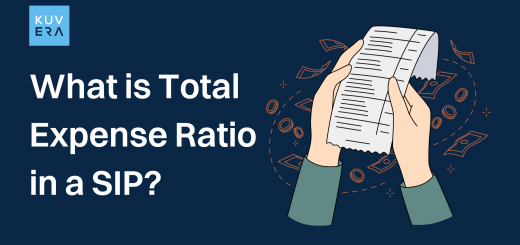#AskUsAnything is our series where we answer questions about investing and personal finance. Probably they popped up in your head too, but you didn’t know whom to ask. In this part, learn how to switch your regular mutual fund plan to a direct plan, and how to take charge of your investments after divorce.
———-
My husband and I started investing in Mutual funds 5 years ago. We went with our CA’s recommendations because both of us were new to equity investments. After some research, I figured all these are regular plans and we have been paying quite some commission fees on them. Will it be a good idea to switch to direct plans right now?
-Ashwini Mehta, Pune
You have finally spotted the difference and are headed in the right direction. Regular Plans pay commissions to the broker or the distributor, direct plans, on the other hand are commission-free. The expense ratio can reduce considerable portion of your overall returns in the long run.
Here’s how:
We did the portfolio value calculations for just a ₹1 lakh investment in a Direct Plan and a Regular Plan over 40 yrs.
We assumed a 12% return on investments and a total Expenses Ratio of 1.0% for Direct Plans and 2.5% for Regular Plans. And the compounding impact made the difference strikingly clear – the direct fund portfolio was worth 35% more in just 20 years.
So yes, the 1.5% commission you save every year can make a great difference to your corpus. Let’s see how the switch happens.
A switch from a regular plan to a direct plan means two things: selling units of the regular plan scheme and buying units of the direct plan scheme for the same amount.
Since your portfolio is only 2 years old, we are assuming you have a mix of young and old funds. Here’s how you can expect your funds to respond to this transition and make an informed decision.
- Short-Term Capital Gains Taxes: You will incur STCG tax on equity fund units less than a year old. STCG is calculated as 15% for gains in equity funds. If your investment is in loss then STCG won’t be applicable.
- Long-Term Capital Gains Taxes: You will incur LTCG on units held for more than 1 year for equity funds and 3 years for debt funds. LTCG is calculated as 10% of the gains for equity funds with an exemption on the first ₹1 lakh of gains. If your investment is in loss then LTCG is not an issue.
- Exit Load: Exit load varies from scheme to scheme. Most schemes do not charge exit load after 1 year of holding the units.
- Lock-in period: This applies mostly to ELSS schemes. If your ELSS units are within the 3-year lock-in, then the switch in such schemes is not allowed. Switch orders placed in units under the lock-in period will fail.
Now that you know, which funds to switch or wait out, here’s how the switch happens:
The fund house nets the proceeds of selling scheme A to buy Scheme B without involving your bank. But this only ensures the switch of your existing regular plan units to direct plan units. To continue your SIPs (under the direct funds), you will need to stop the SIP with your regular plan provider and start a SIP in the direct plan from a direct plan platform.
———-
I’m 40 yo undergoing a divorce. Although I’m financially independent, I don’t know much about investing. Our finances during the last 15 years of marriage were handled by my husband. I don’t know how to go about settling our finances.
-Priya, Chennai.
It’s a common dilemma faced by many separating couples, however, you could also seek legal counselors, financial advisors, etc., should you find the process taxing. For starters, you can look out for these basic things:
If you maintain an amicable relationship with your ex-partner, we recommend you go through the finances together.
- Joint Accounts: If you have any joint bank accounts, we’d advise you to settle them on priority. You can start by listing down all your joint investments.
- Nominations: Update the nominee in your insurance policies, PF account, PPF, etc., wherever you might have nominated your ex-partner.
- Credit Cards: If you have a co-owned credit card, settle the balances immediately and close the accounts as soon as possible.
- Investments: Before agreeing on how to allocate the funds, ensure that you have full knowledge and understanding of the investments. Investment value and actual returns vary according to risk levels, taxes, and expense ratios. There will also be investments that might make more sense to one partner than another— depending on your individual risk appetite, goals & responsibilities. So, do seek expert advice if you find it difficult to make such decisions.
- Mortgage: If you have any joint loans, remember that mortgages can be a bit of a hassle. Even if one partner decides to take full ownership, the process of refinancing will require approval from entities. One of the viable options is to sell the property and divide the proceeds.
We hope educating yourself on personal finances & taking charge of your investments empowers you on your new journey. Wish you luck!
———-
Interested in how we think about the markets?
Read more: Zen And The Art Of Investing
Watch/hear on YouTube:
Start investing through a platform that brings goal planning and investing to your fingertips. Visit kuvera.in to discover Direct Plans and Fixed Deposits and start investing today.
#MutualFundSahiHai #KuveraSabseSahiHai! #AskUsAnything #PersonalFinance
———-
p.s: If you have a question about investing or personal finance, shoot it on Twitter tagging our handle @Kuvera_In
First published by Livemint on MintGenie.










